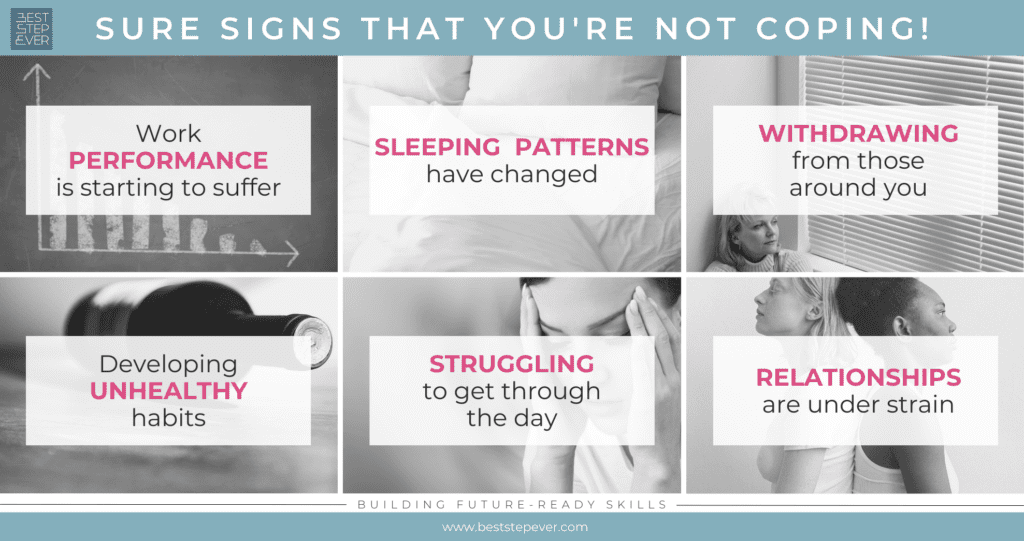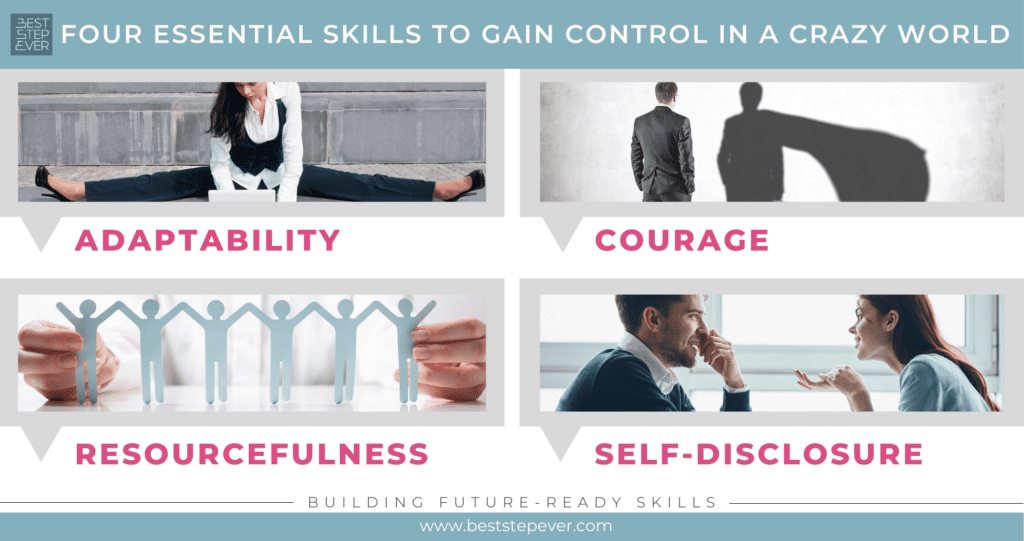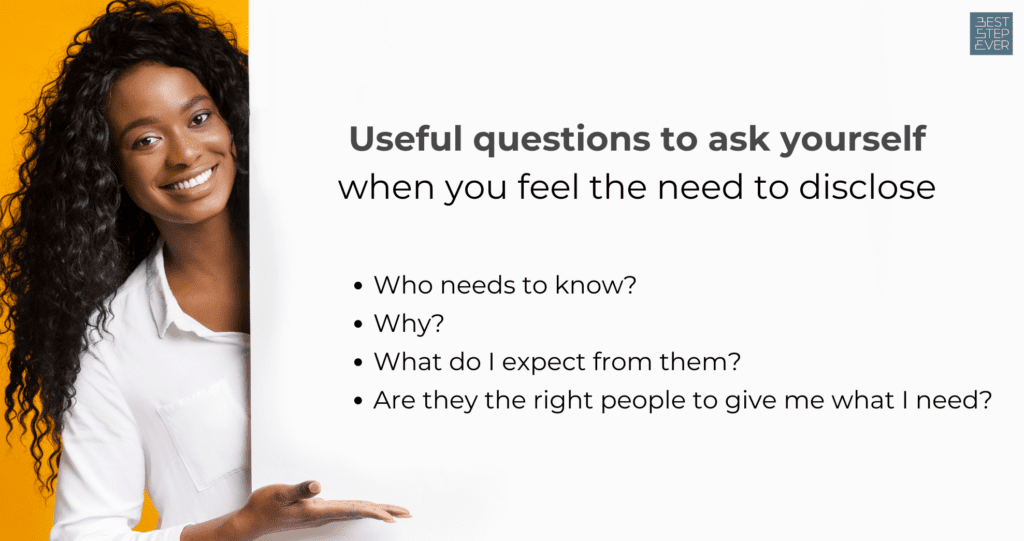We can stay in control and get ahead. How? Through being aware of our feelings and using our insights to learn new skills. Even though this crazy world may seem far too turbulent at times.
The unlikely impact on us of an uncertain world
How to stay sane and be smart about gaining power over our future, is a daunting question for many of us.
Feel like the world is a scary place right now? You’re not alone! It disturbs our health and wellbeing. It helps to try new things, and learn new skills, as a positive way to cope and move forward.
Being exposed to armed conflict, even third hand e.g. through broadcasting or social media, threatens our physical security and mental stability. As our small planet is forced to host escalating conflict, so we are affected negatively on a deeply personal level.
There’s so much conflict and polarisation in the world right now. Territorial disputes, civil war, instability – the list goes on. These disputes are not of our choosing, yet they absorb our energy and impact our wellbeing. We want to help but we feel helpless.
On a micro level, we may be able to help through volunteering or donating. That allows us to take some positive action and empowers us in a small way because we feel that somewhere, somehow, we are making a measurable difference to someone.
Yet on the macro level we’re left feeling frustrated because we have no direct impact on decisions made by our governments and policy-holders. We can only look on and hope for the best outcome.
We are bystanders to what’s happening. Yet our minds are actively absorbing and learning. And we are forming new opinions and new ways of dealing with events as a result.
So what have we learned? Well, for once, work hasn’t changed but we have! Learnster has identified ten trends that will shape our organizations in 2022 and beyond.
These include a renewed focus on health and wellbeing; the importance of organizational support for upskilling and reskilling, prioritizing adaptability over stability, acknowledging the strong return on investment that diverse and inclusive workplaces provide, as well as the importance of purpose both for organizations and the individuals who chose to work there.
Alongside this, there has been much personal learning. People are defining their relationships with work and the workplace. They are becoming clearer about their priorities and values.
There’s a lot of unplanned and unexpected change going on in our minds. This is driven by our feelings and experiences during the recent pandemic. Along with what’s unfolding on the world stage.
It’s time to dig a bit deeper into the impact of our emotions and how we can use negative events to create positive outcomes.
Sure signs that we're not coping

Are you feeling any of the following emotions on a recurring basis?
- - Anxiety
- - Irritability or quick to anger
- - Overwhelmed
- - Worried
- - Unmotivated / couldn’t be bothered about things you usually care about
- - Frustration because you can’t concentrate
- - Helpless
- - Fearful of the future
- These could be psychological or emotional signs that your stress levels are too high.
- Perhaps you’re observing these emotions in others. The same thing applies to them – so don’t take it personally if their emotions are directed towards you.
If these emotions persevere to the point that they are negatively impacting your daily life, you probably need help. Examples of impact on your daily life could be:
- - Your work performance is starting to suffer
- - Your sleeping patterns have changed (sleeping much more or much less)
- - You’re withdrawing from those around you
- - You’re developing unhealthy eating, alcohol or drug-related habits
- - You’re struggling to get through the day
- - Relationships with those around you are under strain
- These are all powerful signs that things are not well and you need to exercise some self-care to stop spiraling down further.
Four ways to stay sane when all hell is breaking loose

- Let’s unpack some ways to deal with the negative impact of the external environment on ourselves:
- 1. Get support
Here are some ways to get support as suggested by Mental Health America:
- Ask someone to give you hand with the stuff that’s overwhelming you. Don’t be too concerned about creating an obligation. You can return the favour when you’re feeling stronger and more able to cope.
- Reach out and ask for advice or guidance. You’re not expected to know everything or to be able to deal with everything.
- Get emotional support. This could involve sharing your emotions with a good friend. Or getting professional help if you feel you’re in deep over your head and can’t move forward.
2. Connect with others
The worst thing you can do is to withdraw. Now is the time to reach out and surround yourself with the right people.
So who are the right people? Here are some important traits:
They need to genuinely love you and care about your wellbeing. They’re not there for what they can get out of you; rather they want the best for you in a non-judgmental manner. They’ll say and do the right things to make you feel heard and understood.
They’re available. They’ll put time aside not when it suits them, but when you need it most. They’re the 3 am friends. The people you can call at 3 am and they’ll be there for you. Because they care deeply and are prepared to make space in their busy lives for the people they care most about.
They’re honest and have integrity. They’ll tell it like it is, but nicely! They’re not going to pretend things are better than they are, and they’re not going to pretend that they have all the answers. What they do have is the ability to tell you things you may not want to hear, but that is going to make a material difference in your life.
They relate to your situation. Perhaps they’ve been through similar stuff themselves. Or their lifepath is similar to yours. They have the empathy and the context to provide genuine concern and support. Without needing to control the dialogue.
3. Be kind to yourself
Perhaps you’re beating yourself up about your inability to cope. Perhaps there’s a lot of negative self-talk going on in your head.
This is the time to be kind to yourself and and that doesn’t mean enforcing a positive mindset. It’s more about accepting where you find yourself and acknowledging what is and is not realistic about your thinking. And allowing yourself to move forward at your own pace, without negative judgment.
Dr Alice Boys, in this wonderful Harvard Business Review article, talks about four aspects of compassionate self-talk. They are:
- - Using a tone of kindness
- - Recognizing that pain is a universal human experience
- - Taking a balanced approach to our negative emotions
- - Expecting yourself to make the best decision you can in the situation you’re in
- 4. Get centered
Being centered or grounded means that you're in charge of your mental and emotional self. You’re not unduly influenced by others. The opposite would be to feel out of kilter or unbalanced.
One way to get this feeling of being centered is to practice mindfulness. In other words, being fully aware of the present moment. Many people find their way to mindfulness through meditation.
Headspace is an app that makes meditation very simple. You can select short or long meditations to get you to the tranquil space you want to be.
Another way to get centered is to practice a breathing technique. One of the simplest ones is the focus on your breath. Slowly breathe in on the count of three, and then breathe out on the count of three. Do this for several minutes until you feel more balanced and in control.
And finally, it helps to give fewer f*cks! Make a mental list of what you should care less about, right now. If that doesn’t help, head to Mark Manson's epic book on this topic.
Four essential skills to gain control in a crazy world

Let’s examine four skills that we can build to help us be stronger and more in charge in a changing world. Of course, this applies to helping those around us too.
1. Adaptability
In a previous blog I unpacked three elements of adaptability, namely seeing change as positive, thinking agile and having a flexible attitude.
Let’s add another dimension to this: confidence in your own abilities to weather the storm and adapt to circumstances along the way.
A few years ago, I consulted a psychologist to support me in navigating some changes in my life. She said something that stuck with me forever.
“Imagine you’re on this side of the shore”, she said. “You want to get to the other side. If you wait for perfect weather, and the perfect boat, and the perfect travel companions, guess what?”
I ventured a guess. “I’ll never start on my journey?”.
“That’s exactly right!” she said. “If you wait for ideal conditions, you’ll never get going. Sometimes you just have to trust in your ability to row the boat despite any storms that come your way. You just need to get in the boat and have confidence in your abilities to move forward”.
That was a powerful message. It was the best possible message for me at that time. It made me realize that having an adaptable mindset is the difference between being stuck and moving forward.
2. Courage
For a very long time I thought that courage meant the absence of fear.
It was only much later that I understood that true courage means pushing through despite the fear. And that the most courageous people probably feel the most fear.
A very courageous people I got to meet was a dynamic CEO. As a public figure he was often quoted in the press. In times of emotional stress, he would develop a stutter. He hated public speaking but his desire to communicate his message was stronger than his fear. So, he would forge ahead even in situations where he knew his temporary speech disturbance may trip him up or slow him down.
His presence was magnified rather than diminished by this challenge. Each of us observing him was humbled by the courage of his convictions which overcame any personal anxieties about his speaking abilities.
To develop courage, we need to practice facing the things we fear. That’s probably not what you wanted to hear!
3. Being resourceful
Being resourceful means that we have the ability to try different ways to solve a problem or rise to a challenge. We may try different things; or call on people we know; or do some research to find the outcome we want.
This implies the need to be open-minded, pro-active in your approach and willing to think out of the box.
Resourcefulness has a close friend called Creativity. Now the more we can spark our ability to think creatively, the more likely we are to come up with lots of different ideas to deal with the problem at hand.
There’s also a self-assuredness about being resourceful. A quiet confidence that even when things get tough, you have the ability and mindset to find different ways to problem-solve the situation you’re facing.
In a fast-changing world which holds daily challenges, being resourceful is a hidden talent. It gives us options. And the more resourceful we are, the more options we can create.
How do we build resourcefulness? It’s actually easier than you think. One very effective way is to practice using simulations. Create a situation or problem. Then brainstorm the different ways you could tackle the problem.
You’ll probably find out very quickly that harnessing the diverse brain-power of others gives you even better solutions. Resourceful people seldom run alone.
4. Self-disclosure
“I’m feeling completely overwhelmed,” a colleague told me recently. “First the pandemic, and now it feels like World War III is going to break out. It’s just too scary. I’m spending too much time worrying about things I can’t control. I’m not sure what the future holds and whether I should consider taking on a less stressful role in a remote part of the world to get away from it all”.
Once she’d voiced her thoughts, we had a better understanding of the pressures facing her. We started to understand better why she’s been short-tempered and irritated of late. We were able to give her the space and empathy she needed to unpick her feelings.
Disclosing to others how you feel helps them to understand where you’re at. Keeping it to yourself does both you and them a disservice.
A problem shared is a problem halved
However, the art of what to disclose, and when, to whom, is the crux of the matter.
Giving too little information doesn’t give the people around you enough context. As a result, you may find their input disappointing.
Provide too much, and context also disappears in all the irrelevant detail. It’s a Goldilocks thing. The porridge (or information flow) needs to be just right. Not too hot or too cold, not too much or too little.

- Yes, the world is a crazy place. Maybe it’ll get even crazier.
- But if we can identify and acknowledge our feelings, that helps us maintain equilibrium. And if we use these insights to gain new skills, that gives us more power over the future. We can’t change the world, but we can change how we respond to it.
- BestStepEver is an online community focused on building future-ready skills in ten minutes a day. Click here to get in touch with us.


